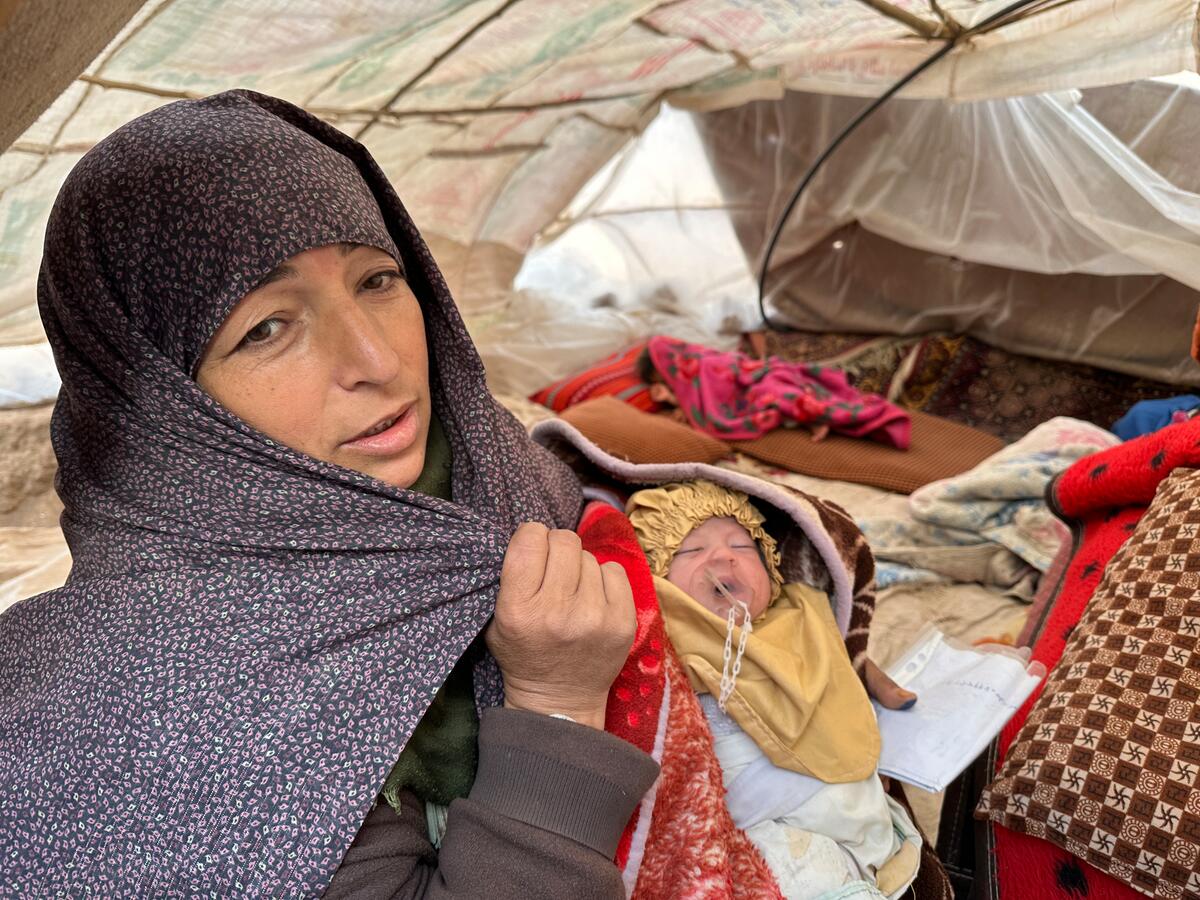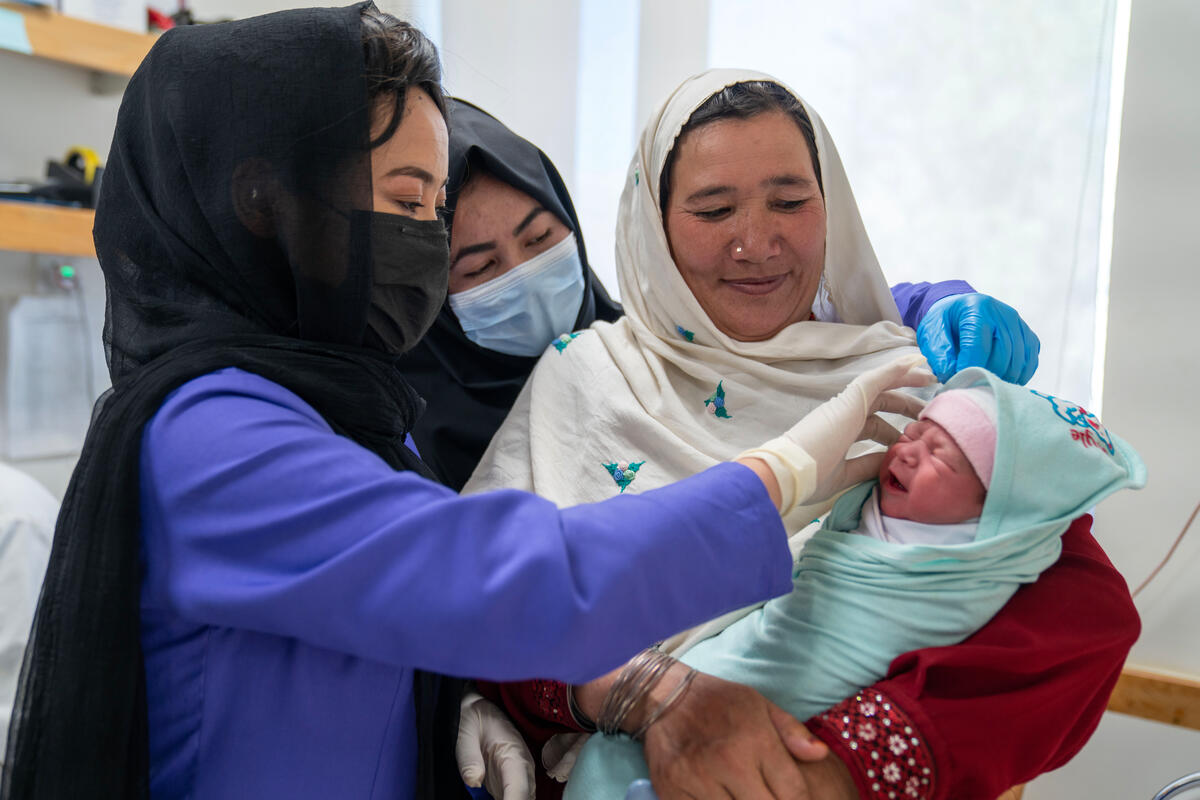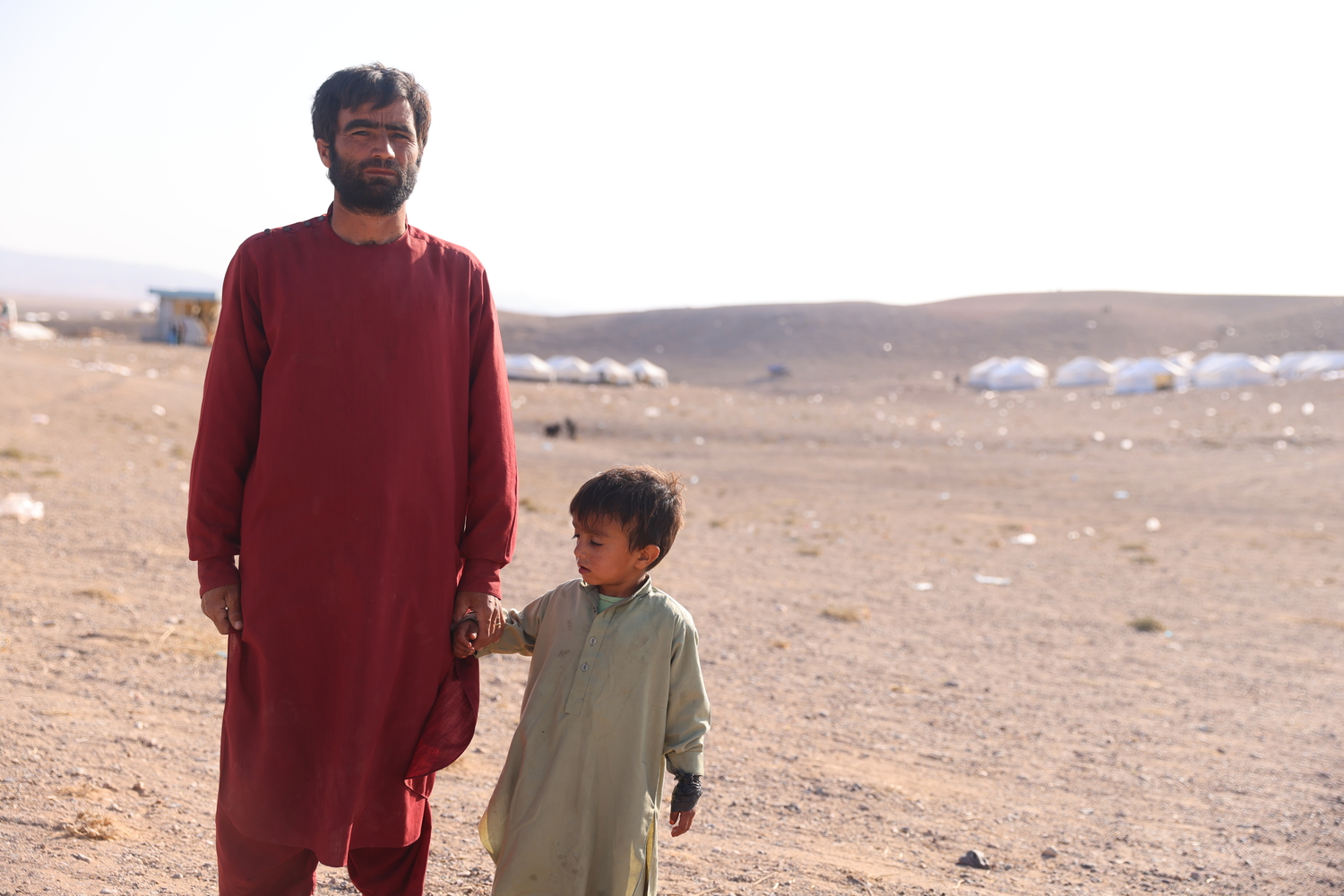Pakistan border camp closes; all Afghan residents return home
Pakistan border camp closes; all Afghan residents return home

BASSU CAMP, Pakistan, Aug 26 (UNHCR) - A final convoy of trucks carrying refugees who chose to repatriate from Bassu camp rumbled toward Afghanistan this week, the fourth closure this year of a camp established by the UN refugee agency to house Afghans who fled the 2001 war that unseated the Taliban.
All 5,000 residents of Bassu camp, members of the minority Hazara ethnic group, decided to move back to Afghanistan when UNHCR announced that assistance to the "new" camps established as an emergency measure less than three years ago - food, water, health clinics, schools and other support - would cease on September 1.
"This is a very important moment when all Bassu refugees have decided to go back to Afghanistan," said Masti Notz, head of the UNHCR sub-office in Peshawar. "They are a minority group going mainly to Hazarajat and Ghazni province. They will be a part of their country, they will be part of the reconstruction of Afghanistan."
A total of 190,000 refugees in the "new" camps were offered the option to return to Afghanistan with enhanced repatriation assistance or to relocate on their own to the older refugee camps in Pakistan. The camp closures so far leave only a few hundred families in four "new" camps in Pakistan's North West Frontier province (NWFP) and a rapidly dwindling population in the six "new" camps of Balochistan province.
UNHCR, the World Food Programme and the government of Pakistan issued a joint announcement in July that all UNHCR assistance to the "new" camps would end on September 1. The camps, all but one located very near the border with Afghanistan, were expensive to maintain and faced increasing security problems.
The majority of residents of the camps in NWFP have chosen repatriation, with a minority relocating to the old camps where assistance on education, health, sanitation and water will continue. However, most residents of new camps in Balochistan have so far remained in the camps.
In addition to Bassu camp, the twin camps at nearby Asgharo are now completely empty. Only five families remain in Old Bagzai camp, with UNHCR protection staff working with them on their relocation to a safe site.
By the end of Wednesday, 35,246 residents of the new camps in NWFP had chosen to repatriate. In addition to the assistance provided by UNHCR to all Afghans returning to their homeland, those returning from the new camps are receiving a tent and three months of food assistance on arrival in Afghanistan.
Those returning from NWFP are already more than half of the 65,000 who had been registered in the camps. Many of the remaining number are thought to have already relocated to the old camps but the precise number will become clear only with the end of assistance next week.
Another camp in NWFP, Shalman, was closed earlier this year before the decision was made to end assistance in all the "new" camps. The majority of those refugees also chose repatriation over relocation elsewhere in Pakistan.
Departures from the camps in Balochistan have been much slower, although the numbers asking for repatriation assistance from "new" camps have risen sharply in the past week to reach 24,000 so far this year.
UNHCR has assisted more than 2.2 million Afghans to return from Pakistan to their homeland since March 2002. This includes more than 300,000 who have returned this year.








